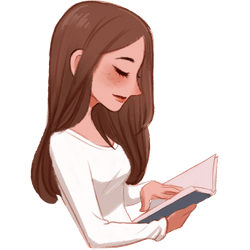The good will always win out over the evil. If you think that you will be rewarded for your good deeds, then you will. John Steinbeck’s novel East of Eden challenges the idea of a reader reading and discussing controversial or unpopular subjects with themselves. Steinbeck puts obstacles in each character’s path to remind them that battling personal demons, and those of others is part of daily life. This event can also be a literal encounter with a demon. Your response to them will reveal your true character. But the real question is, do the characters have the strength to handle the situation? Will they depend on others or can they do this themselves? Steinbeck suggests that human redemption and triumph can only come from the struggle against good and evil. That is what we are.
Cathy Ames is a manipulative, brutal, and parasitic character. Cathy Ames is not what you think she is. She is not misshapen and has no non-existing or extra limbs. Cathy’s description is that she has an exotic, delicate, and beautiful appearance. Steinbeck begins the novel by writing, “The face and the body are perfect. If a twisted DNA or an egg malformed can create physical monstrosities, might not the process also produce a misformed soul?” She is a morally depraved monster that acts to control and destroy. From a very young age, she exhibits murderous tendencies and sexual perversions. Cathy is based on Eve, who was the mother of mankind and mistress of sin. But while Eve had to be coerced, Cathy just accepts it as if she were a stray kitten. She manipulates others to achieve her goals by using their trust, kindness, and generosity against them. Cathy’s behavior is not justified, as she was raised in a loving family and given good opportunities. There was no single event that led her to become the person she is. She may be holding on to some insecurities and demons that she has, and she treats them with barbaric acts. Also, it seems that she has no goal in mind. Cathy is, in this way, the most thought-provoking and confusing character of the novel.
Adam Trask is Cathy’s late-novel husband. He faces both literal demons and metaphorical ones. Adam Trask, Cathy’s husband in the later parts of the novel, faces both literal and metaphorical demons. Adam is trying to create an Eden-like garden, but it is actually based on Adam and Eve’s Garden of Eden. Cathy is clear in her statement that she does not want this. She does not want to marry Adam, move away or have his children. Her actions throughout the years support this idea. When Cathy leaves Adam, she shoots him. Adam falls to the floor. He forgot to feed the twins” (Steinbeck 202). Adam’s demon is brought to light in this scene. Adam feels that both his wife and his children have failed him because they left and he “neglected”. The twins should have still been nursing their mother at this age. Cathy, not Adam, is responsible for failing to feed her twins. It’s Cathy, not Adam, who is the parent that’s failed.
Adam’s inner demons stem from his mother’s suicide. Adam feels that he might have been able to do more for his mother’s sake, or even just for Adam. His mother, in fact, had her own issues she was unable to overcome. He feels he should have done more to keep Cathy with him. Cathy has her own twisted demon problems which are not Adam’s fault. Adam is a man of both kindness and naiveté. Adam’s betrayal in the Trask first generation and his role as Eve’s friend Adam are traits that show these traits. At several points, I wondered if Adam really was that ignorant or if he knew Cathy’s true character and refused to let negativity in his life. If that’s the case then he would be unable to benefit from thinking or believing positively. His cards were more likely to damage his life and character.
This novel shows characters who are aware of their own bad qualities and wonder how they will overcome them. Cal Trask shows envious behavior similar to Charles Trask. They loved each other but they could not stop wishing bad things for their brothers. Over time, they became jealous of each other because they didn’t receive the same positive attention as their brothers. Cal Trask believes that his mother’s evil is in him once he discovers the identity of his mother. He also believes that he cannot be as good as his brother. It is his inner turmoil that drives the final portion of this novel.
Cal finally gets a taste of Aron’s life, when Aron’s fiancee falls in love. Abra says Cal is her favorite because of his “everything” – goodness, badness and joy. Other words, the ability to choose between virtue and sin, denial or acceptance, good and bad, is what makes humanity superior to other species. Steinbeck is suggesting that a full human being must possess all the qualities of Cal Trask. Steinbeck is teaching his audience to be a contradiction. The idea is that every person has a monster similar to Cathy Ames and, in turn, a gullible naive purity. This means that the very essence of our humanity rests on whether or not we can choose to do good or evil.
